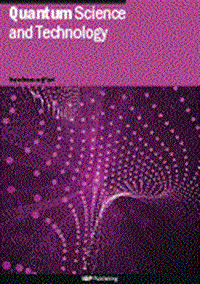Adiabatic dynamics of entanglement
IF 5
2区 物理与天体物理
Q1 PHYSICS, MULTIDISCIPLINARY
引用次数: 0
Abstract
We show that, during adiabatic evolution, any changes in entanglement can be attributed to a succession of avoided energy level crossings at which eigenvalues swap their eigenvectors. These swaps mediate the generation and redistribution of entanglement in multipartite systems. The efficiency of this redistribution depends on the narrowness of the avoided level crossings and thus constrains the speed of adiabatic evolution. Moreover, we relate the amount of entanglement involved to the ruggedness of the energy landscape, which directly affects the hardness of a computational problem. This enables an analysis of computational complexity and quantum advantage from the point of view of entanglement requirements. Applied to adiabatic quantum computation, our findings directly relate the computation’s speed to its utilization of entanglement as a resource. The same principles extend to gate-based discretized adiabatic quantum algorithms, including those for Hamiltonian simulation and combinatorial optimization.纠缠的绝热动力学
我们表明,在绝热演化过程中,纠缠的任何变化都可以归因于一系列避免的能级交叉点,在这些交叉点上特征值交换了它们的特征向量。这些交换介导了多方系统中纠缠的产生和再分配。这种重新分配的效率取决于避免的平交道口的狭窄程度,从而限制了绝热演化的速度。此外,我们将涉及的纠缠量与能量景观的坚固性联系起来,这直接影响计算问题的硬度。这使得从纠缠需求的角度分析计算复杂性和量子优势成为可能。应用于绝热量子计算,我们的发现直接将计算速度与纠缠作为资源的利用联系起来。同样的原理扩展到基于门的离散绝热量子算法,包括那些用于哈密顿模拟和组合优化。
本文章由计算机程序翻译,如有差异,请以英文原文为准。
求助全文
约1分钟内获得全文
求助全文
来源期刊

Quantum Science and Technology
Materials Science-Materials Science (miscellaneous)
CiteScore
11.20
自引率
3.00%
发文量
133
期刊介绍:
Driven by advances in technology and experimental capability, the last decade has seen the emergence of quantum technology: a new praxis for controlling the quantum world. It is now possible to engineer complex, multi-component systems that merge the once distinct fields of quantum optics and condensed matter physics.
Quantum Science and Technology is a new multidisciplinary, electronic-only journal, devoted to publishing research of the highest quality and impact covering theoretical and experimental advances in the fundamental science and application of all quantum-enabled technologies.
 求助内容:
求助内容: 应助结果提醒方式:
应助结果提醒方式:


